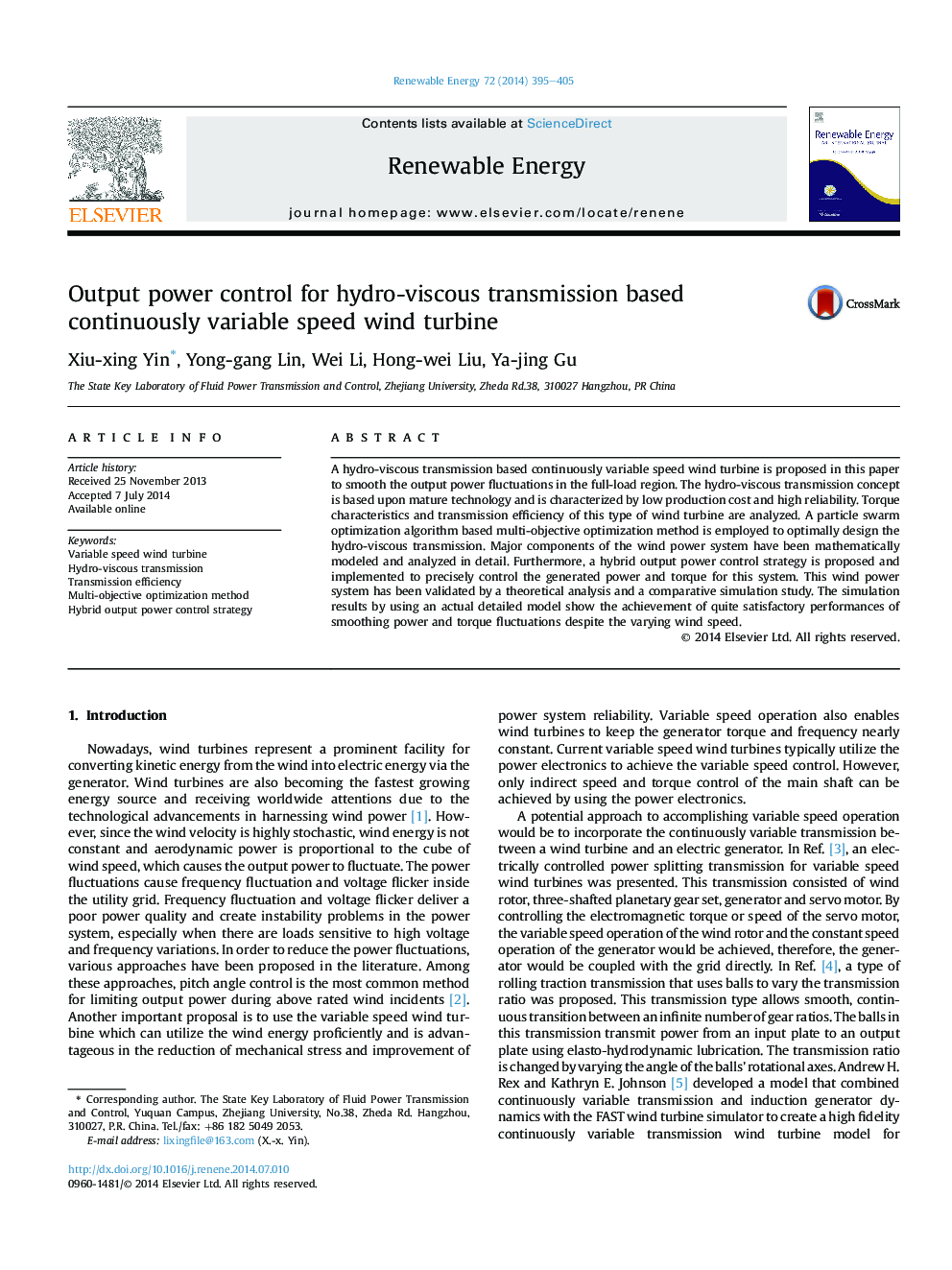| Article ID | Journal | Published Year | Pages | File Type |
|---|---|---|---|---|
| 6768002 | Renewable Energy | 2014 | 11 Pages |
Abstract
A hydro-viscous transmission based continuously variable speed wind turbine is proposed in this paper to smooth the output power fluctuations in the full-load region. The hydro-viscous transmission concept is based upon mature technology and is characterized by low production cost and high reliability. Torque characteristics and transmission efficiency of this type of wind turbine are analyzed. A particle swarm optimization algorithm based multi-objective optimization method is employed to optimally design the hydro-viscous transmission. Major components of the wind power system have been mathematically modeled and analyzed in detail. Furthermore, a hybrid output power control strategy is proposed and implemented to precisely control the generated power and torque for this system. This wind power system has been validated by a theoretical analysis and a comparative simulation study. The simulation results by using an actual detailed model show the achievement of quite satisfactory performances of smoothing power and torque fluctuations despite the varying wind speed.
Related Topics
Physical Sciences and Engineering
Energy
Renewable Energy, Sustainability and the Environment
Authors
Xiu-xing Yin, Yong-gang Lin, Wei Li, Hong-wei Liu, Ya-jing Gu,
